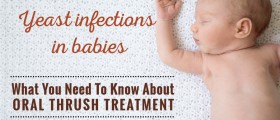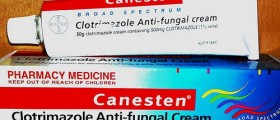
Yeast infection and yeast allergy
Yeast infection is one of the most common infections that may occur in women, as well as in men. This infection is caused by the fungus called Candida Albicans, which is present in the human body, especially in the intestinal tract. This fungus can be found in many foods. Candida Albicans is harmless when it is kept under control by the friendly bacteria called Lactobacillus Acidophilus, as well as by the body’s immune system. However, due to many factors, the yeast begins to overproduce itself thus resulting in yeast infection. For this reason, the affected person experiences many yeast allergy symptoms.
The people who are sensitive to yeast usually develop certain body reactions after consuming the foods that contain yeast. These people are hypersensitive to a protein that is found in yeast. The immune system of those people reacts to this protein as if it is a foreign body. Thus, the immune system starts the production of the antibodies and histamines to fight against this protein and as a consequence, the allergic reactions appear.
Causes of yeast allergy
It is considered that there are two main reasons responsible for the occurrence of yeast allergy.
The first is refers to the situations when people are allergic to the yeast and they consume it through foods. The foods rich in yeast are bread, cheese, mushrooms, tomato sauce and soy sauce, as well as wine, beer, dried fruits and peanuts. Thus, the people who are allergic to yeast should avoid these foods and drinks.Another cause for the appearance of yeast allergy is candidiasis or yeast infection in the body. This infection is also well known under the names thrush, candidiasis, moniliasis and oidiomycosis. Yeast infection usually appears in warm and damp parts of the body, such as mouth and genital area. However, it may also affect the lungs, heart, kidneys and nails.However, yeast allergy may also be provoked by consumption of antibiotics, contraceptive pills and lot of sugar and sugary products.Symptoms of yeast allergy
Yeast allergy may show its symptoms very quickly, even after several minutes, but the symptoms usually last about a day. The most common symptoms of yeast allergy are sore throat, sneezing, nasal congestion and skin rash. Furthermore, the people who are sensitive to yeast after consuming it may also experience itchy eyes and nose, watery eyes and running nose, headaches and white coated tongue. Diarrhea, constipation, vomiting and abdominal bloating, as well as heartburn, dizziness and fatigue may also appear as the symptoms of yeast allergy. Other warning signs of this condition include wheezing and coughing.

















Your thoughts on this
Loading...